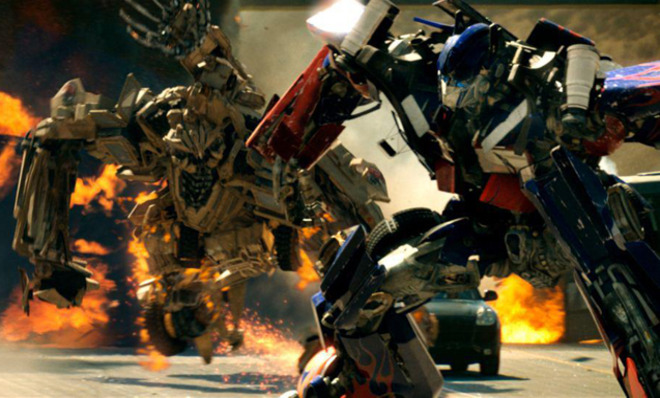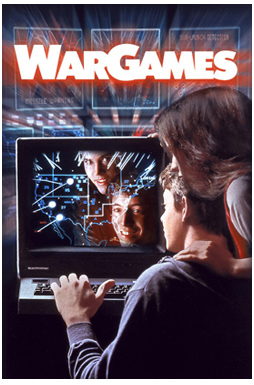Why, Robot? 80 years of Hollywood technophobia
Transformers: Age of Extinction is the latest in a long line of Hollywood movies about the dangers of technology. What are we so afraid of?

A free daily email with the biggest news stories of the day – and the best features from TheWeek.com
You are now subscribed
Your newsletter sign-up was successful
Transformers: Age of Extinction arrives in theaters on Friday. Picking up four years after the events of the last film, Michael Bay's quasi-reboot of the franchise sees mankind turn on the transforming robots that were the world's saviors for the first three outings. It's something of a departure for the franchise, but for Hollywood — which has trafficked in thrillers about evil machines for the better part of a century — it's just a return to the norm.
If there's a single unifying theme in the blockbusters released this year, it's technophobia. There were drones in February's Robocop; Johnny Depp's insidious OS in Transcendence; and, most recently, the sinister sentinels in X-Men: Days of Future Past.
Where does Hollywood's consistent technophobia stem from? Why does an industry that's constantly evolving to accommodate new technologies produce so many movies that come with an inherent distrust of the next big thing?
The Week
Escape your echo chamber. Get the facts behind the news, plus analysis from multiple perspectives.

Sign up for The Week's Free Newsletters
From our morning news briefing to a weekly Good News Newsletter, get the best of The Week delivered directly to your inbox.
From our morning news briefing to a weekly Good News Newsletter, get the best of The Week delivered directly to your inbox.
The roots of Hollywood's technophobia run deep. They can be traced to the gulag-like machine rooms of Fritz Lang's 1927 epic Metropolis, and the insidious assembly lines of Charlie Chaplin's 1936 comedy Modern Times. In both cases, the filmmakers were consciously exposing audiences to common fears of their era: an extension of the industrial revolution so dramatic that humankind itself ended up crushed under all the new machinery.
But as technology began to evolve beyond looms and assembly lines, so did its role in entertainment. In the 1950s and 1960s, stories about automatons gave way to stories about the nuclear bomb. In 1964, Stanley Kubrick's legendary jet-black satire Dr. Strangelove tackled the fallibility of doomsday machines — and just four years later, Kubrick returned to the cold logic of 2001: A Space Odyssey's Hal 9000 for a parable about the unchecked advance of the microchip.

The advent of the personal computer era in the 1980s did a lot to defang Hollywood's terror of a supercomputer doomsday — but as technological innovation started to enter the average household, home computers were being villainized on the big screen. Matthew Broderick unwittingly brought the world to the brink of nuclear apocalypse after playing with the wrong machine in 1983's War Games, while Superman found himself going toe-to-keyboard with an uber-powerful computer geek that same year in Superman III. And neither of those movies have anything on Tron, which took us inside our own machines to show us that circuit boards were really nothing more than evil dictatorships.
Today, our understanding of computers has evolved and the average Americans carry more processing power in their pocket than was used to put a man on the moon. Many of Hollywood's technophobic thrillers now seem quaint.
A free daily email with the biggest news stories of the day – and the best features from TheWeek.com
But has anything really changed? Technology continues its role as one of the big screen's go-to antagonists. Whether it's hacked by activists (Live Free or Die Hard, Misson: Impossible—Ghost Protocol,), used and abused by people in power (Looper, Elysium), or simply engineered to eradicate the human race (The Terminator and Matrix movies), the message from Hollywood is just as clear now as it was in the past: technology is not to be trusted.
Which raises the question: why, in an era when so many of us work with computers every day, has Hollywood failed to evolve? Lazy screenwriting is partly to blame. Like Nazis and aliens, mechanical menaces have always served as an easy out for any writer looking for a generic villain whose hatred needs little or no explanation (and who can be dispatched without any rated-R bloodshed).
But you could also make the case that movies are merely holding a mirror up to their audiences' concerns. Blockbusters like Robocop, Captain America: The Winter Soldier, and Transformers: Age of Extinction have channelled fears about military drones, state spying, and government overreach.
To a degree, any movie reflects the concerns of the era that spawned it — but in the end, Hollywood's ongoing anxiety over technology's unchecked advance might stem from something a little closer to home. With the rise of radio, TV, home theater, and the internet, Hollywood itself is routinely threatened by technology that competes for the eyes and dollars of audiences across the world. Maybe Tinseltown's fear of all technology that doesn't further the art of cinema is just another way to mark its territory. With a multi-billion-dollar business on the line, is it any wonder that movies have a vested interest in painting new technology as the bad guy?
Daniel is a freelance writer, an Englishman abroad, and a pop culture junkie. He writes about film, TV, and lifestyle for outlets including MSN, The Guardian, The Times, The Independent, The Evening Standard, and Yahoo.
-
 Gisèle Pelicot’s ‘extraordinarily courageous’ memoir is a ‘compelling’ read
Gisèle Pelicot’s ‘extraordinarily courageous’ memoir is a ‘compelling’ readIn the Spotlight A Hymn to Life is a ‘riveting’ account of Pelicot’s ordeal and a ‘rousing feminist manifesto’
-
 The EU’s war on fast fashion
The EU’s war on fast fashionIn the Spotlight Bloc launches investigation into Shein over sale of weapons and ‘childlike’ sex dolls, alongside efforts to tax e-commerce giants and combat textile waste
-
 How to Get to Heaven from Belfast: a ‘highly entertaining ride’
How to Get to Heaven from Belfast: a ‘highly entertaining ride’The Week Recommends Mystery-comedy from the creator of Derry Girls should be ‘your new binge-watch’